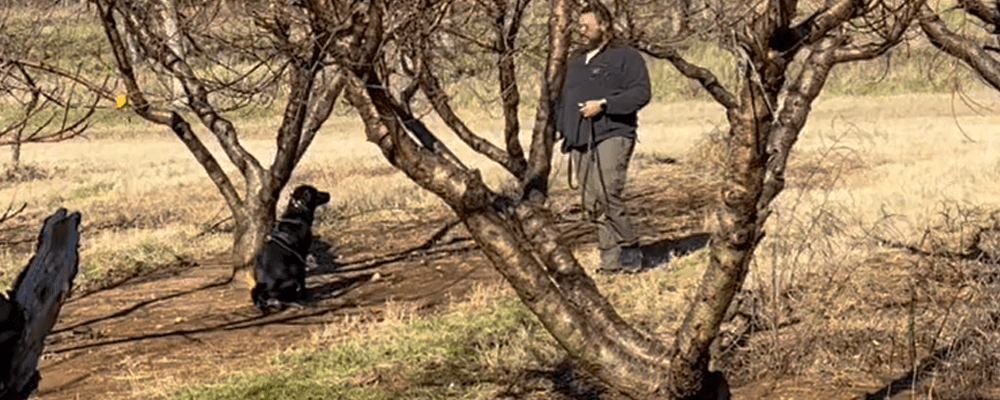Plant Protection Today: USDA Detector Dogs Combat the Fruit Fly Threat in California

Our Highly Skilled K9s Can Detect Invasive Threats with One Sniff
By April Dawson

USDA’s Plant Protection and Quarantine (PPQ) program and the California Department of Food and Agriculture (CDFA) have been facing exotic fruit fly incursions in California. Luckily, PPQ and CDFA are experienced at eradicating fruit flies—and our detector dogs are trained to help! PPQ Officer canine teams from our National Detector Dog Training Center (NDDTC) are slated to deploy to California to support our fruit fly emergency response. Two canine teams were trained to detect exotic fruit fly larva within the host environs.
Our Detector Dogs to The Rescue
These hardworking dogs represent some of the recent successes of PPQ’s Agricultural Detector Canines strategic initiative. Its goal is to expand the use of detector dogs to enhance domestic pest surveys, detect pests early, and facilitate the trade of U.S. agricultural products. “We are very excited to be heading to California to help out with the fruit fly emergency response,” said Jennifer Taylor, PPQ canine handler. “We actually trained three dogs to head to California. Rudey, a springer spaniel; Bradley a black Lab; and Levi, another black Lab. We always train an extra, so we have a backup dog available. All three have done very well and are ready to go.
The detector dogs are trained on live Mexican fruit fly larvae within fruit and will transition them to other fruit fly larvae species once we are within the quarantine zones in California. “We have a permit to have sterilized Mexican fruit fly larvae here at NDDTC”, says Taylor. “The larvae cannot become adults, so they make the perfect training tools for larvae detection dogs.”

These K9s Know Their Stuff
The dogs are highly skilled and able to discern between species of fly by smell. They can find as little as three larvae within fruit. It’s amazing how the dogs will find exactly what they are trained to find! Because of that, the handlers will sometimes train their searching behaviors at the NDDTC with a substitute odor and then add the primary target odors once within the quarantine zones where their target is readily available. In training their searching behaviors, the handlers try to emulate their live environment as much as possible, so the dogs have been heading out to groves, nature preserves, personal properties, and cargo areas to train. This helps them to focus and work despite interesting distractions.
The entire team—handlers and the dogs are eager to soak up that California sunshine and, of course, get to work!

#
#
USDA is an equal opportunity provider, employer, and lender.

